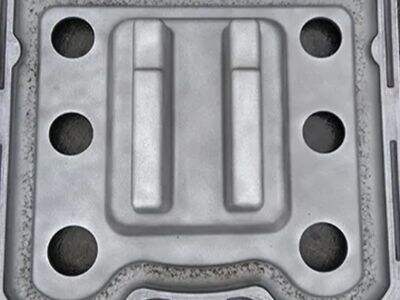Have you ever turned a plastic toy or a container over in your hands and thought, "How did they make that? “It could have been done with something like a rotomolding process.
What is Rotomolding?
Rotomolding, or rotational molding is a process that produces plastic parts in virtually any shape and size using molds.
Critical Manufacturing Considerations for Successful Rotomolding Tooling Design
There are several things you should take into account in order to create quality Rotomolding Aluminum Mould. Here are some of the things that contribute to making your molds work well and produce quality products:
Material for making the Mold: Good quality material is essential because it directly influences the strength and long-term durability of the final product.
Cooling: After the mold is heated to the desired temperature, it must cool down appropriately for production. Air cooling and water cooling are two popular methods to cool molds.
Mold Requirements: The size and shape of the product you are looking to produce will be an important factor in determining what the mold needs to look like.
Tips and Tricks
Having an idea about the key factors in mold design, let’s check out some of the tips to better your rotomolding mold design:
Adding Texture: A further great tip is to consider adding texture or designs on the surface of the mold. It can help in making your final Rotomolding Steel Mould more appealing to the eyes.
Design Your Mold With Draft Angles: One of the key pieces of advice for you to design your mold with draft angles.
Mold Material Selection: Which Option Is Best?
As already stated, in the case of small and simple products aluminum is a decent choice. It is lightweight, easy to handle, and cheaper than steel. Aluminum molds are not as long-living as steel molds, which means they can wear out more quickly.
On the contrary, Rotomolding Product which is the steel molds are more durable and hence ideal for bigger complicated products. The rotomolding process requires very high temperatures, so these types have a longer lifespan as well as being able to handle it.
Mold Design: How to Optimize This Process
It is crucial that the mold be designed not only for the product being created through injection, but also for the production process itself to optimize mold design. The only caveat here is that you might need to add things like draft angles, cooling channels or any textures and graphics you wish.
Conclusion
To sum up, rotomolding mold design is a critical factor to consider when manufacturing high-quality plastic products via the rotomolding method. With knowledge of the basics of mold design and its main considerations (size, shape, material selection and cooling processes), you can help ensure that everything goes smoothly in your project.
 EN
EN
 AR
AR
 BG
BG
 HR
HR
 CS
CS
 DA
DA
 NL
NL
 FI
FI
 FR
FR
 DE
DE
 EL
EL
 HI
HI
 IT
IT
 JA
JA
 KO
KO
 NO
NO
 PL
PL
 PT
PT
 RO
RO
 RU
RU
 ES
ES
 SV
SV
 ID
ID
 LV
LV
 LT
LT
 SR
SR
 SL
SL
 VI
VI
 SQ
SQ
 ET
ET
 HU
HU
 TH
TH
 TR
TR
 AF
AF
 GA
GA
 CY
CY
 BE
BE
 LA
LA
 UZ
UZ


